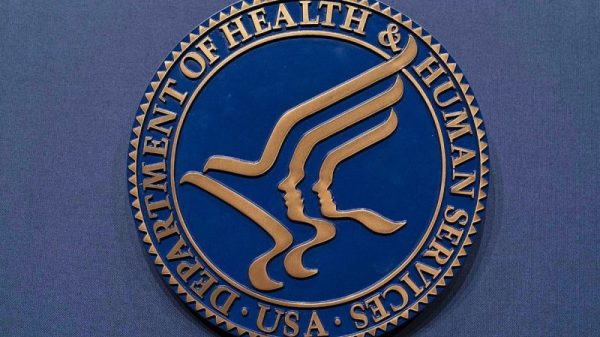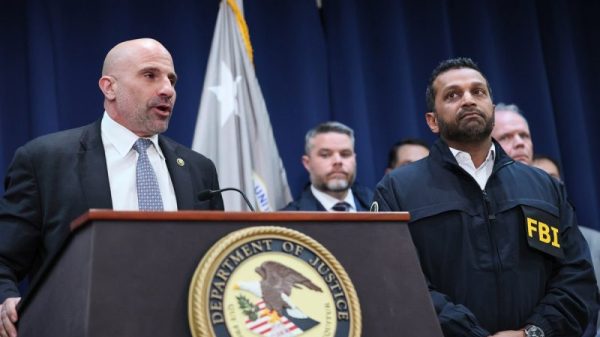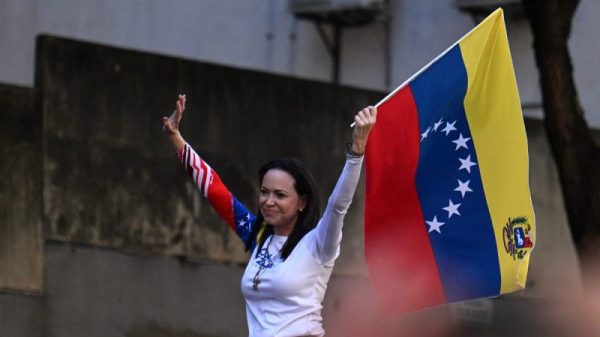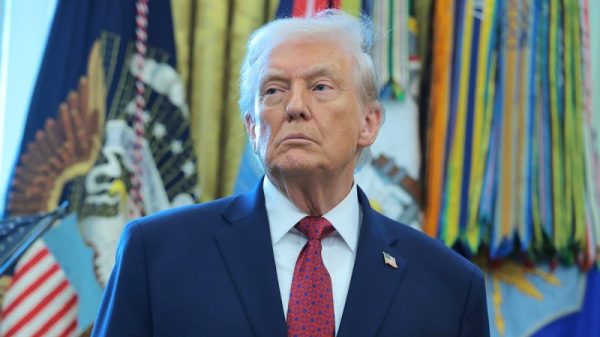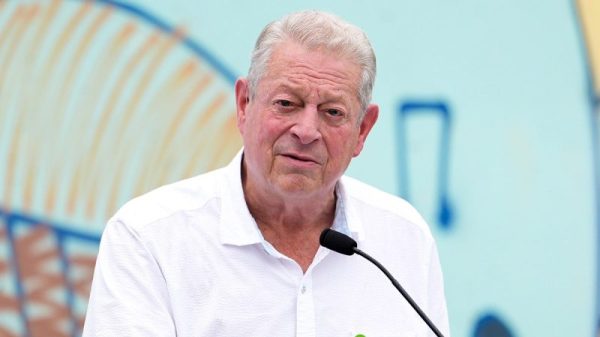The Colorado Republican Party on Wednesday asked the U.S. Supreme Court to ensure that Donald Trump’s name can appear on the state’s primary ballot after Colorado’s high court said he had engaged in insurrection and was ineligible to hold office again.
The request came a week after the Colorado Supreme Court determined that Trump engaged in insurrection before and during the Jan. 6, 2021, attack on the U.S. Capitol and as a result is barred from running for office again under a Civil War-era provision of the Constitution.
The Colorado Republican Party asked the justices to reverse the ruling, saying the state court had misinterpreted Section 3 of the 14th Amendment and had interfered with the party’s First Amendment rights of free association.
“For the first time in American history, a former President has been disqualified from the ballot, a political party has been denied the opportunity to put forward the presidential candidate of its choice, and the voters have been denied the ability to choose their Chief Executive through the electoral process,” Jay Sekulow and other attorneys for the state Republican Party wrote in their petition.
Trump is far ahead in the race for the Republican nomination, but his candidacy would be endangered if other states also kept him off the ballot. The former president has called the Colorado ruling a form of election interference, while his opponents have argued that he is responsible for putting himself at risk of being taken out of the running.
Voters have challenged Trump’s ability to run elsewhere in the country, but Colorado is the only state that has said he cannot run.
The Colorado justices put their Dec. 19 decision on hold until Jan. 4 and said they would keep the hold in place if an appeal were filed. By filing the appeal, the Colorado Republican Party is getting Trump’s name back on the March 5 ballot, at least in the immediate term.
The U.S. Supreme Court is not obligated to take the case, but legal scholars have urged the justices to resolve the matter promptly so all states follow the same policies. Without a ruling from the nation’s high court, some states could allow Trump on the ballot while others bar him.
The 14th Amendment to the Constitution was adopted in 1868, three years after the end of the Civil War. The amendment provided citizenship to those born or naturalized in the United States and guaranteed equal protection of the law to all, including those who had been enslaved. Section 3 of the amendment, which was originally intended to prevent former Confederates from returning to power, prohibits people from holding office if they “engaged in insurrection or rebellion” after swearing an oath to support the Constitution.
The Colorado Republican Party made three main arguments in saying the Supreme Court should reverse the state ruling. Section 3 applies to those who took oaths to serve in Congress or a state legislature, but not to serve as president, the party contended. In addition, states cannot enforce Section 3 because Congress hasn’t given them that power, the party said. What’s more, the Colorado ruling “violates the Colorado Republican Party’s First Amendment associational right to place the political candidates of its choice on both the primary and general electoral ballots,” the attorneys for the party wrote in their petition.
The challenge in Colorado was filed by six Republican and independent voters with the help of the group Citizens for Responsibility and Ethics in Washington. “We are reviewing the Colorado Republican Party’s appeal and will be filing a motion to expedite shortly,” the group’s president, Noah Bookbinder, said in a written statement.
The high courts in Michigan and Minnesota have allowed Trump to appear on the ballot in their states. Oregon’s high court and Maine’s secretary of state are expected to weigh in on challenges in their states soon.
Federal judges have ruled against a Texas tax consultant who has filed lawsuits around the country seeking to remove Trump from the ballot in more than a dozen states.
The Colorado Republican Party on Wednesday asked the U.S. Supreme Court to ensure that Donald Trump’s name can appear on the state’s primary ballot after Colorado’s high court said he had engaged in insurrection and was ineligible to hold office again.
The request came a week after the Colorado Supreme Court determined that Trump engaged in insurrection before and during the Jan. 6, 2021, attack on the U.S. Capitol and as a result is barred from running for office again under a Civil War-era provision of the Constitution.
The Colorado Republican Party asked the justices to reverse the ruling, saying the state court had misinterpreted Section 3 of the 14th Amendment and had interfered with the party’s First Amendment rights of free association.
“For the first time in American history, a former President has been disqualified from the ballot, a political party has been denied the opportunity to put forward the presidential candidate of its choice, and the voters have been denied the ability to choose their Chief Executive through the electoral process,” Jay Sekulow and other attorneys for the state Republican Party wrote in their petition.
Trump is far ahead in the race for the Republican nomination, but his candidacy would be endangered if other states also kept him off the ballot. The former president has called the Colorado ruling a form of election interference, while his opponents have argued that he is responsible for putting himself at risk of being taken out of the running.
Voters have challenged Trump’s ability to run elsewhere in the country, but Colorado is the only state that has said he cannot run.
The Colorado justices put their Dec. 19 decision on hold until Jan. 4 and said they would keep the hold in place if an appeal were filed. By filing the appeal, the Colorado Republican Party is getting Trump’s name back on the March 5 ballot, at least in the immediate term.
The U.S. Supreme Court is not obligated to take the case, but legal scholars have urged the justices to resolve the matter promptly so all states follow the same policies. Without a ruling from the nation’s high court, some states could allow Trump on the ballot while others bar him.
The 14th Amendment to the Constitution was adopted in 1868, three years after the end of the Civil War. The amendment provided citizenship to those born or naturalized in the United States and guaranteed equal protection of the law to all, including those who had been enslaved. Section 3 of the amendment, which was originally intended to prevent former Confederates from returning to power, prohibits people from holding office if they “engaged in insurrection or rebellion” after swearing an oath to support the Constitution.
The Colorado Republican Party made three main arguments in saying the Supreme Court should reverse the state ruling. Section 3 applies to those who took oaths to serve in Congress or a state legislature, but not to serve as president, the party contended. In addition, states cannot enforce Section 3 because Congress hasn’t given them that power, the party said. What’s more, the Colorado ruling “violates the Colorado Republican Party’s First Amendment associational right to place the political candidates of its choice on both the primary and general electoral ballots,” the attorneys for the party wrote in their petition.
The challenge in Colorado was filed by six Republican and independent voters with the help of the group Citizens for Responsibility and Ethics in Washington. “We are reviewing the Colorado Republican Party’s appeal and will be filing a motion to expedite shortly,” the group’s president, Noah Bookbinder, said in a written statement.
The high courts in Michigan and Minnesota have allowed Trump to appear on the ballot in their states. Oregon’s high court and Maine’s secretary of state are expected to weigh in on challenges in their states soon.
Federal judges have ruled against a Texas tax consultant who has filed lawsuits around the country seeking to remove Trump from the ballot in more than a dozen states.

